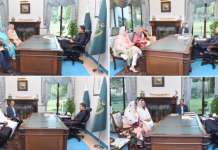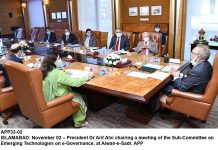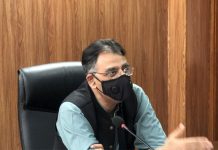LAHORE: The Government College University (GCU) is holding a three-day international conference on ‘Inter-Regional Connectivity: South Asia and Central Asia’ to discuss vitality of inter-regional connectivity and explore avenues of mutual cooperation.
As many as 25 foreign experts from Russia, China, Nepal, Tajikistan, Uzbekistan, UK, Singapore, Italy, Germany, Singapore and US are participating in the conference – starting from November 9 – featuring debates on geopolitics of corridors, building economic and political linkages, energy security, socio-cultural connectivity and peace and security-centric cooperation among the South Asian and Central Asian states. About 72 research papers would be presented at the six technical sessions of the conference, while the formal and informal panel discussions on the themes of the conference had already started. Addressing a pre-conference media briefing, GCU Vice Chancellor Prof Dr Hassan Amir Shah said the post-Soviet Central Asia was once again ready to revive historical legacy, wherein focus was on building of politico-economic linkages, and strengthening of cultural ties. Moreover, he said, it was equally imperative to launch joint adventures to quell the rise of terrorism, militancy and religious extremism for sustainable peace and development in the ‘heart of Asia’.
The conference chairman, Prof Dr Khalid Manzoor Butt, stated the phenomena of interregional connectivity in Asia was the need of time and a way forward for South and Central Asian states, wherein they could gain more through cooperative interplay. He said the conference encompassed within its purview new trends of regionalism in connection with indigenous demands and realities of ‘sisterly regions’ – South Asia and Central Asia. The conference is being jointly organised by the university’s Political Science Department and Centre of Excellence, China Studies in collaboration with the both federal and provincial higher education commissions.














